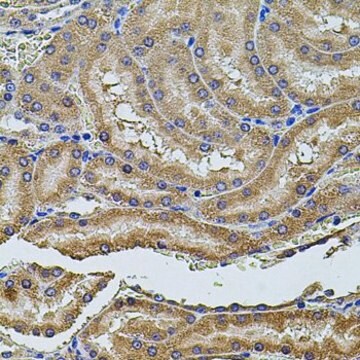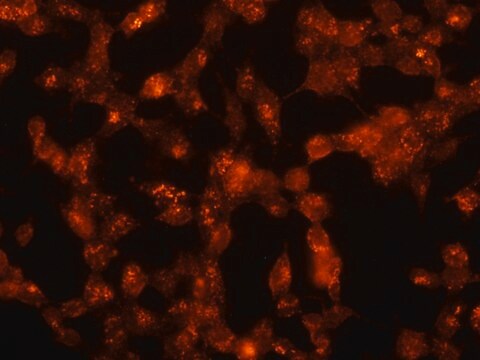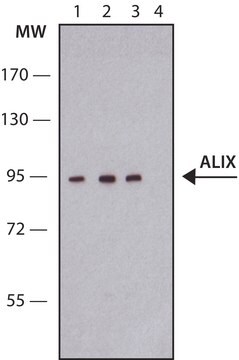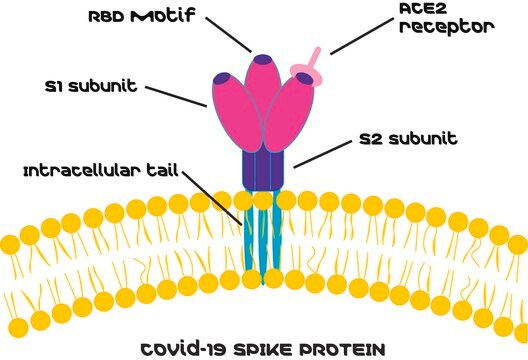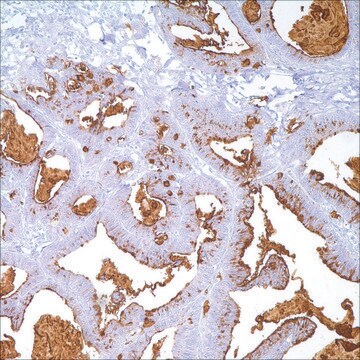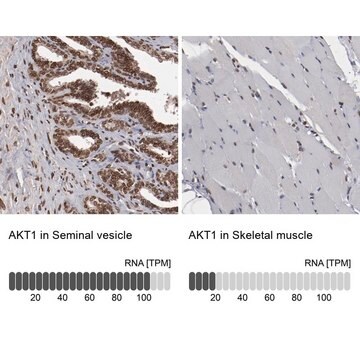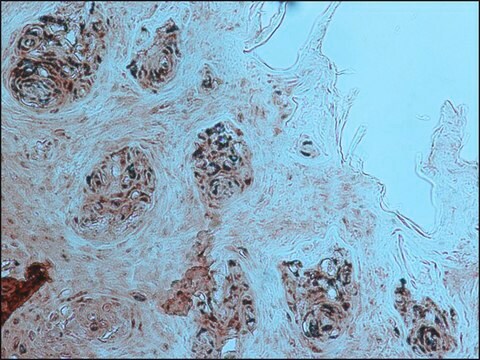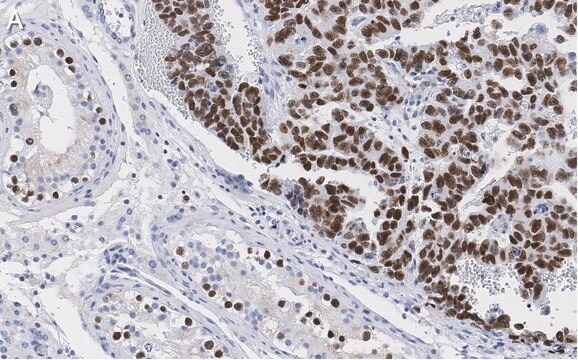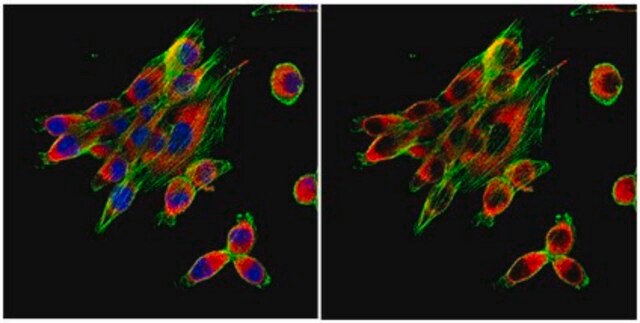SAB4200646
Monoclonal Anti-ALIX/PDCD6IP antibody produced in mouse
clone ALIX-1, purified from hybridoma cell culture
About This Item
Recommended Products
biological source
mouse
Quality Level
antibody form
purified immunoglobulin
antibody product type
primary antibodies
clone
ALIX-1, monoclonal
form
buffered aqueous solution
species reactivity
human
concentration
~1 mg/mL
technique(s)
flow cytometry: 5-10 μg/test using using human MOLT4 cells
immunoblotting: 2-5 μg/mL using using whole extracts of human MOLT4 cells.
immunofluorescence: 10-20 μg/mL using using human HeLa cells
immunoprecipitation (IP): 10-20 μg/mL using using lysates of human MOLT4 cells.
isotype
IgG1
UniProt accession no.
shipped in
dry ice
storage temp.
−20°C
target post-translational modification
unmodified
Gene Information
human ... PDCD6IP(10015)
General description
Immunogen
Application
- immunoblotting
- immunoprecipitation
- immunofluorescence
- flow cytometry
Biochem/physiol Actions
Physical form
Disclaimer
Not finding the right product?
Try our Product Selector Tool.
Storage Class Code
10 - Combustible liquids
WGK
WGK 1
Flash Point(F)
Not applicable
Flash Point(C)
Not applicable
Choose from one of the most recent versions:
Certificates of Analysis (COA)
Don't see the Right Version?
If you require a particular version, you can look up a specific certificate by the Lot or Batch number.
Already Own This Product?
Find documentation for the products that you have recently purchased in the Document Library.
Our team of scientists has experience in all areas of research including Life Science, Material Science, Chemical Synthesis, Chromatography, Analytical and many others.
Contact Technical Service